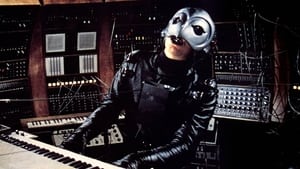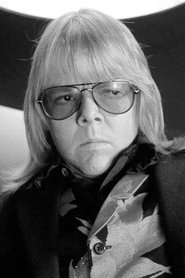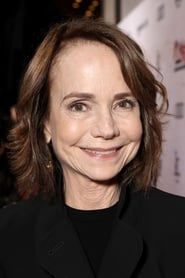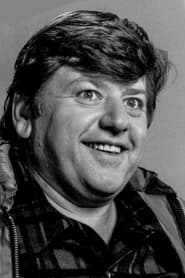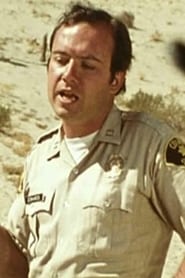Cast
View AllWilliam Finley
as Winslow Leach / The Phantom
Paul Williams
as Swan
Jessica Harper
as Phoenix
George Memmoli
as Philbin
Gerrit Graham
as Beef
Archie Hahn
as The Juicy Fruits / The Beach Bums / The Undeads
Jeffrey Comanor
as The Juicy Fruits / The Beach Bums / The Undeads
Peter Elbling
as The Juicy Fruits / The Beach Bums / The Undeads
Colin Cameron
as Band
David Garland
as Band
Gary Mallaber
as Band
Art Munson
as Band
Mary Margaret Amato
as Swan's Entourage
Rand Bridges
as Swan's Entourage
Jim Bohan
as Swan's Entourage
Crew
Director
- Brian De Palma
Writer
- Brian De Palma
- Louisa Rose
Producer
- Edward R. Pressman
Reviews
CinemaSerf
William Finley as the eponymous character and Paul Williams as the duplicitous record producer "Swan" both ham up enjoyably in this update of the Gaston Leroux novel. "Finley" is writing a cantata, parts of which are overheard by the unscrupulous "Swan" who gets his sidekick "Philbin" (George Memmoli) to pinch the score. Next thing, auditions are ongoing and the poor old writer has been well and truly sidelined. He's determined to wreak his revenge, a determination amplified after an accident sees him hideously disfigured. With chaos ensuing all around, "Swan" decides to try and make a peace with his nemesis - but pretty soon it's clear that's never going to work and as the opening night of the rock club "The Paradise" looms ever closer, you have to wonder if you'd really want a ticket after all. It's good fun this film with some entertaining performances at the top, Jessica Harper holds her own as the feisty chanteuse "Phoenix" and there's just about enough menacing megalomania to prevent it descending into farce. It's quite easy to see how many subsequent films or concepts it may have spawned as it takes much from musical theatre and high drama and mingles them into something that's a sort of an hybrid of the "Man from U.N.C.L.E" and "Jesus Christ Superstar". Williams also wrote much of the of the original soundtrack with a few power ballads packed in to keep the pace moving along and it's worth sticking about for the credits. It has dated, but I still enjoyed it.
Sep 20, 2024
Thematic Analysis
This Music/Comedy/Horror film explores themes of fear and survival, delving into the psychological aspects of human nature when confronted with the unknown. Phantom of the Paradise presents a unique perspective on the horror genre by focusing on the psychological terror rather than relying on typical jump scares.
Director Brian De Palma brings their distinctive visual style to this film, continuing their exploration of themes seen in their previous works while adding new elements. Their approach to pacing and visual storytelling creates a viewing experience that rewards close attention.
Released in 1974, the film exists within a cultural context that now offers viewers historical perspective on the social issues of that era. Its critical acclaim reflects its artistic achievements and its place in cinema history.
Did You Know?
- The production of Phantom of the Paradise took approximately 19 months from pre-production to final cut.
- With a budget of $1.3 million, the film represented a significant investment in bringing this story to the screen.
- The final cut of the film runs for 92 minutes, though the director's initial assembly was reportedly 145 minutes long.
- The film contains approximately 2399 individual shots.
- The costume department created over 116 unique costume pieces for the production.
- The director insisted on using practical effects whenever possible, reserving CGI for only the most necessary scenes.
Historical Context
- In 1974, when this film was released:
- The Watergate scandal changed public perception of political institutions.
- Disco music dominated popular culture.
- The film industry was dominated by major studios, with independent cinema still in its early development.
How This Film Stands Out
While Phantom of the Paradise shares thematic elements with other films in its genre, it distinguishes itself through its unique approach to storytelling, visual style, and character development.
Unlike Long Live Rock... Celebrate the Chaos, which takes a more conventional approach to its subject matter, Phantom of the Paradise offers a fresh perspective through its innovative visual language and narrative structure.
While films like Cry of the Banshee and Spirit Trap explore similar territory, Phantom of the Paradise stands apart through its deeper exploration of its central themes and more complex characterization.
This film's unique contribution to cinema lies in its bold artistic choices and willingness to challenge viewer expectations, making it a valuable addition to its genre.
Details
- Release Date: October 31, 1974
- Runtime: 1h 32m
- Budget: $1,300,000
- Revenue: $250,000
